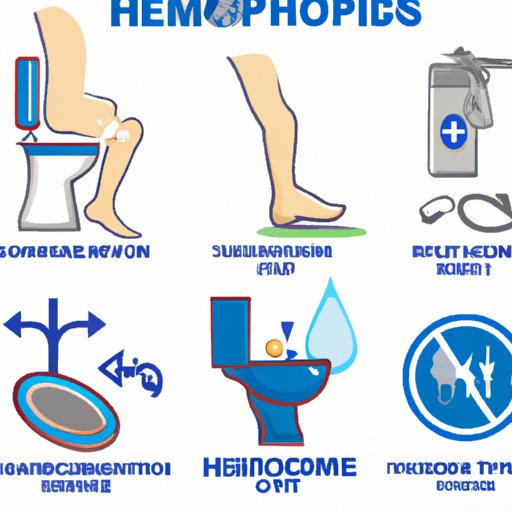
Introduction
Hemorrhoids are a common but uncomfortable medical condition that affects millions of people around the world. Hemorrhoids develop when the veins in the rectal and anal area become swollen and inflamed, and symptoms can range from mild discomfort to itching, bleeding, and significant pain. While there are various treatment options for hemorrhoids, prevention is key in avoiding discomfort and recurrence.
Diet and Hydration
One of the main causes of hemorrhoids is constipation, and a diet high in fiber and water can help prevent this uncomfortable condition. Fiber helps soften and bulk stool, making it easier to pass, and water helps keep stool soft and easy to pass. Some excellent sources of fiber include whole grains, fruits and vegetables, beans, and legumes. You can also try supplements like Metamucil to help increase your dietary fiber intake. It is important to drink plenty of water to prevent dehydration and avoid excessive alcohol and caffeine intake, which can lead to dehydration.
Exercise and Movement
Regular exercise and movement can improve bowel movements and reduce pressure on the rectal area. Exercise helps increase blood flow and improve digestion, which can help ease constipation. Try to engage in activities such as walking, running, or swimming at least three to four times a week. Specific pelvic floor exercises, like Kegels, can also strengthen the muscles in the pelvic area and improve bowel movements. In addition, avoid prolonged sitting or standing, which can worsen hemorrhoids and lead to further discomfort.
Proper Toileting
Using proper toileting techniques can also help prevent hemorrhoids. Make sure to use the bathroom when you feel the urge, instead of holding it in. Also, try squatting instead of straining to pass stools, which can reduce pressure on the anal area. Some people have even found success with footstools, which can encourage a more natural squatting position. You should also use gentle, non-irritating wipes and avoid excessive force while cleaning the anal area after bowel movements.
Lifestyle Changes
Various lifestyle factors can contribute to the development of hemorrhoids, including smoking, unhealthy diets, and being overweight or obese. To help prevent hemorrhoids, make positive lifestyle changes like quitting smoking, limiting alcohol and spicy food intake, and maintaining a healthy weight. Be sure to include plenty of fiber and water in your diet and establish a regular exercise routine.
Medical Treatment
In severe cases of hemorrhoids or when symptoms persist, medical treatment may be necessary. Treatment options range from non-surgical procedures like topical creams and sitz baths to surgical procedures like hemorrhoidectomy. However, it is essential to note that medical treatment is often only necessary in severe cases, and prevention is key in avoiding recurrence of hemorrhoids.
Conclusion
Overall, preventing hemorrhoids is crucial in reducing the discomfort associated with this medical condition. By incorporating lifestyle changes like diet and hydration, exercise and movement, proper toileting, and positive lifestyle changes, you can help prevent hemorrhoids from developing in the first place. If symptoms persist, it is important to consult your healthcare provider and explore the available treatment options. Remember, a proactive approach to preventing hemorrhoids can help you maintain your overall health and wellness.




